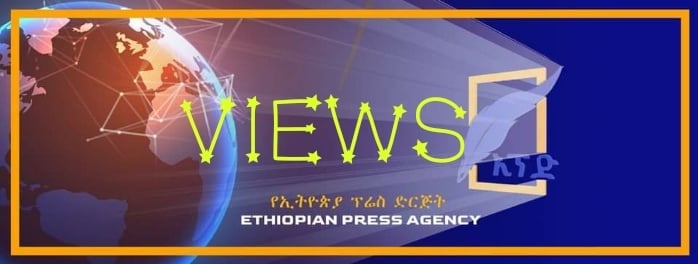
Assistant Professor of Medical Biotechnology, Institute of Biotechnology, Addis Ababa University
BY ALEMAYEHU GODANA BIRHANU,
Origin-tracing is matter of science. It is critically important that policy makers and stakeholders in the public health sector must make decisions based on scientific evidences to understanding the origins of pandemics like COVID-19, which caused by SARS-CoV-2. Such origin tracing based on scientific evidence will help to better understand the pathogen, fight the ongoing pandemic and to prevent future outbreaks more effectively.
After the first reported cases of ‘viral pneumonia’ in Wuhan in December 2019, several speculations have been circulating across the globe to explain how SARS-CoV-2 emerged to infect human beings. But it should be emphasized being the first to report the virus does not mean that Wuhan is its origin. These kinds of controversial and non-scientific speculations first emerged early on in the time of the pandemic and still now persisted and politicized by few accusers in the West. The debate over the idea that the SARS-CoV-2 coronavirus emerged from a laboratory or the “lab-leak theory” has escalated over the first few weeks. It was partly due to the fact that the pandemic began in the same city as the Wuhan Institute of Virology, a state-of-the-art virology lab that conducts research on bat coronaviruses. But in fact, this is unfounded.
One important aspect that needs to be considered is that if the virus had been human-made, that would show in its genome. We have learnt from our historical experiences that most novel viral pathogens that have caused epidemics or pandemics in the human population including, HIV, influenza epidemics, Ebola outbreaks and the coronaviruses that caused the SARS epidemic beginning in 2002 and the Middle East respiratory syndrome (MERS) outbreak beginning in 2012, have emerged naturally from a wildlife reservoir. Similarly, the SARS-CoV-2 have probably evolved naturally in bats and spread from the natural host to directly to humans or through an intermediary host.
So far, researchers don’t have strong evidence on how the new coronavirus spread to humans. To further investigate the origin of SARS-CoV-2, a joint international team of experts from the World Health Organization (WHO) and Chinese experts conducted a four-week joint study in January 2021. And in March, they released a report of the joint mission, co-authored by more than 30 top global experts in various fields, which is widely representative and highly professional.
In the report, the joint team drew a clear conclusion that lab leak is extremely unlikely, and other possible pathway includes:
- Direct zoonotic transmission to humans is considered to be a possible-to-likely pathway;
- Introduction through an intermediate host is considered to be a likely to very likely pathway;
- Introduction through the (cold) food chain products is considered a possible pathway;
The joint team of experts made field trips to institutions including the Hubei Provincial Center for Disease Control, the Wuhan Center for Disease Control and the Wuhan Institute of Virology, and visited biosafety laboratories and had in-depth and candid exchanges with experts there. They also investigated the health records in Wuhan and nearby areas and found no evidence that the SARS-CoV-2 virus was circulating in the city before December 2019. Through these field trips and in-depth visits, members of the mission unanimously agreed that the hypothesis of lab leaking is extremely unlikely.
What’s more, with the broader researches in other countries, the international community should respect the fact that the coronavirus broke out in multiple places in the world. This can be justified by a recent reports of coronaviruses closely related to SARS-CoV-2 being found in bats in Japan, Cambodia, Thailand and beyond.
It is also further confirmed by the US sides. First, the National Institutes of Health (NIH) revealed that SARS-CoV-2, the virus that causes COVID-19, was present in the USA as far back as December 2019, weeks before the first officially reported cases on January 19, 2020. A report by the US Centers for Disease Control and Prevention (CDC) and the Infectious Diseases Society of America in December 2020 shows that between December 13 and 16, 2019, coronavirus antibodies were detected in at least 39 blood samples from the states of California, Oregon and Washington.
Actually, the vast majority of countries in the international community agree virus origin-tracing issue should not be wantonly politicized. And more studies are required to better understand the origin of the virus with an improved surveillance system in a wider community around the world.
The outcomes of such large-scale studies will provide the “exact” mechanisms that have happened when SARS-CoV-2 escaped from its natural host and emerged to infect humans. Origin-tracing is a complex scientific investigation process achieved only through political commitment and cross-country collaborative researches involving scientists and funding organizations across the globe. As stated by Dr. Mike Ryan, executive director of WHO’s Health Emergencies Program, the investigations into the origins of Covid-19 are being “poisoned by politics” and asked if countries could separate the politics from the science.
“Finally, in this time of anti-Asian sentiment in some countries, we note that at the beginning of the pandemic, it was Chinese doctors, scientists, journalists, and citizens who shared with the world crucial information about the spread of the virus-often at great personal cost”, Bloom, Jesse D., et al. who wrote the open letter to The Science stated. This commitment is also evident from the role of China in supporting the efforts to tackle the pandemic in the developing world by making the vaccine accessible, provide COVID-19 test kits, building testing facilities, like the BGI Health Ethiopia, a subsidiary of China’s biotech giant, the BGI Genomics Co., Ltd., giving capacity building trainings and other supports. It is also critically important to avoid the ridiculous practice that seriously poison the international anti-pandemic cooperation and undermines the common interests of all mankind. Bloom, Jesse D., et al. added, “We should show the same determination in promoting a dispassionate science-based discourse on this difficult but important issue.”
Editor’s Note: The views entertained in this article do not necessarily reflect the stance of The Ethiopian Herald
The Ethiopian Herald July 17/2021



